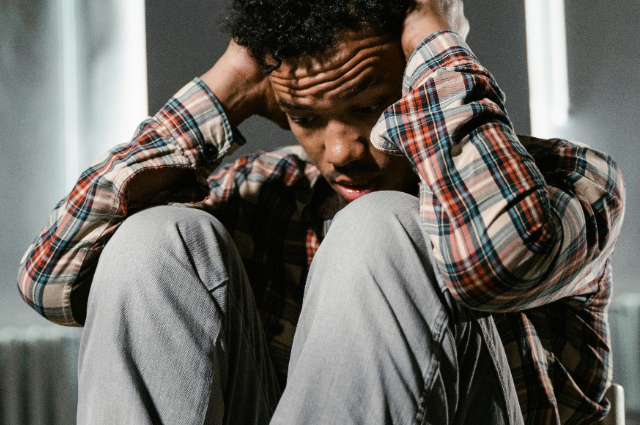
Teenager Targeted Near Bus Stop
In a deeply disturbing incident in Tamil Nadu, a 17-year-old Dalit student was brutally attacked by three individuals in the Srivaikuntam area of Thoothukudi district. The attack which took place near a bus stop has raised serious concerns about caste-based violence in the region.
Victim and Attackers Identified
According to reports from the Thoothukudi police, the victim identified as Devandhira Raj, is a resident of Ariyanayagapuram village, which is located near Srivaikuntam. The perpetrators of the attack are believed to be from the dominant caste of a neighbouring village.
Authorities revealed that the incident occurred while Devandhira Raj was on his way to school. He was traveling on a bus when three youths forcefully pushed him out of the moving vehicle near Kattarimangalam. Once he fell to the ground, they launched a brutal assault on him using a sickle. After carrying out the attack, the culprits quickly fled the scene leaving the young student with severe injuries.
Medical Treatment and Investigation
Following the assault, bystanders rushed the injured teenager to a nearby hospital for immediate medical assistance. His father later admitted him to Srivaikuntam Government Hospital, where he received first aid. Given the seriousness of his condition, he was later transferred to Tirunelveli Government College and Hospital for advanced medical care. Meanwhile, the police swiftly initiated an investigation into the matter. One of the assailants has been identified as 19-year-old Lakshmanan. He was arrested, while the other two suspects have been taken into custody for further questioning.
Rising Concerns Over Caste-Based Violence
This incident has once again highlighted the ongoing caste-based violence in certain regions of Tamil Nadu. Despite legal protections and efforts to promote social equality, attacks targeting marginalized communities continue to occur. Authorities are now under pressure to take strict action against the perpetrators and ensure justice for the young victim. The case remains under investigation and officials are expected to take further legal steps against those responsible for the attack.
Investigation Underway as Authorities Address Alleged Caste-Based Violence in Tamil Nadu
- Police Take Action Following Complaint: In response to a formal complaint filed by the victim's father, the Srivaikuntam Police have officially registered a case under multiple sections of the Bharatiya Nyaya Sanhita (BNS), including Sections 296(b), 109(2), and 351(3). Additionally, the case falls under specific provisions of the Scheduled Castes and Scheduled Tribes (Prevention of Atrocities) Act, 1989—specifically Sections 3(1)(r), 3(1)(s), and 3(2)(v). Law enforcement officials have begun an in-depth investigation to uncover the details surrounding the incident. Authorities have assured that more information will be provided as the inquiry progresses.
- VCK Leader Condemns the Attack, Calls for Government Intervention: Viduthalai Chiruthaigal Katchi (VCK) Chief and Member of Parliament, Thol. Thirumavalavan, has strongly condemned the recent attack, labelling it as a caste-based assault. In his statement, he urged the Tamil Nadu government to take decisive steps to prevent further instances of violence against Dalits, particularly in the southern parts of the state where such incidents remain a pressing concern.
Allegations of Retaliation Over Sports Victory
According to Thirumavalavan, the attack was not a random act of violence but a deliberate act of vengeance carried out by youths from dominant caste groups. He explained that the conflict stemmed from a Kabaddi tournament held in the region. Just days before the incident, a team led by Devandhira Rajan, a Dalit youth from Ariyanayagapuram village, emerged victorious in the competition by defeating a team from Kattiamalpuram village. The winning team celebrated their triumph with the tournament trophy, which allegedly provoked resentment among the losing team members. Unable to accept their defeat, a group of dominant caste youths reportedly targeted Rajan and his friends, attacking them as an act of revenge.
Awaiting Further Developments
As the police continue their investigation, social and political organizations remain vigilant, calling for justice and stricter measures to curb caste-based violence. The case has drawn widespread attention, with activists and political leaders urging the authorities to ensure that the perpetrators are held accountable. Further details regarding the investigation and any subsequent legal proceedings are expected to emerge in the coming days.
Supreme Court Calls for Stronger Laws Against Lynching and Mob Violence
In a previous year landmark judgment, the Supreme Court of India condemned the rising incidents of lynching and mob violence targeting Dalits and minority communities, describing them as "horrendous acts of mobocracy." The court urged Parliament to enact a specific law that establishes lynching as a separate criminal offence with strict penalties to deter such crimes.
State's Duty to Protect Citizens
A three-judge Bench, led by then-Chief Justice of India Dipak Misra and comprising Justices A.M. Khanwilkar and D.Y. Chandrachud, emphasized that it is the duty of the State to protect all citizens and preserve the "pluralistic social fabric" of the nation. The court warned that unchecked mob violence could undermine democracy and the rule of law.
Call for a Strong Legal Framework
In his judgment, Chief Justice Misra stated that any law against lynching must be robust enough to instill fear in potential offenders. The ruling acknowledged the increasing cases of vigilante violence and stressed that such acts must be met with firm legal consequences.
Implications of the Judgment
The Supreme Court’s directive highlights the urgent need for legislative action to curb mob violence, particularly against marginalized communities. While existing laws address murder and assault, the judgment underlines the necessity of a distinct legal provision to recognize and punish lynching as a separate offence.
By calling for stronger legal protections and stricter enforcement, the ruling reinforces the constitutional commitment to equality, justice, and the protection of fundamental rights for all citizens.
. . .
References:
